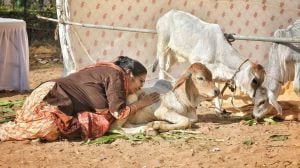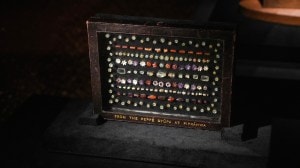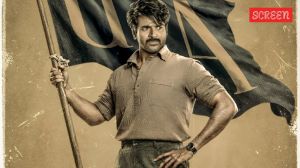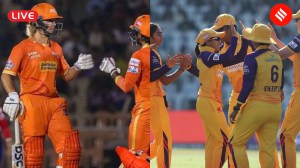Love is Not Lost
A debut collection of short stories turns to urban love
A short story,the critic would say,is a world in brief compass. It provides a sudden,searing illumination into an experience,an event or a life,only to leave you searching for more as the light fades. As a literary tool,its purpose,however,devolves from the philosophical,often acting as a building block for budding writers. Parvati Sharmas debut collection is one such effort,comprising 12 stories of loving and longing in urban India.
New Delhi-based Sharma turns her focus on the residents of thriving,aspirational metropolises. She listens intently,looks hard and laughs; we laugh with her,with an occasional unease,as we wonder at the hurt and violence caused when worlds collide.
Like Mrs Ghoshs world,defined by mustard oil and fish and her two children,which gets rocked by the new neighbours in her Bangalore apartment block: a live-in couple forever canoodling in the kitchen. Her middle-class stolidity is jarred by this new India in Mrs Ghosh Goes to Goa. Had something changed in the world since shed last noticed? Had it always been like this? Sharma lets Mrs Ghosh remain loyal to her worldview,but not before the latter over-generously tips a young,attractive cabbie on her trip to Goa,purportedly because he knew his place.
Sharmas prose works best when it is spare,like the brief,pointed descriptions in The Dead Camel: the muffler-wrapped ride in an auto in Delhis unforgiving winter and the lifetimes spent in office cubicles looking at flickering monitors. Her dialogue,of people talking over drinks about fiction,Dalit rights and the human condition,becomes a realistic portrayal of the banality of urban chatter. The dead camel does not remain a mere carcass on the road it assumes magical realist proportions,becoming the subject of the intermittent dreams of the protagonist who finds love,only to lose it.
In Sharmas stories,love comes to all,but its whims and caprices catch them unawares. In Re: Elections,2004,a politically apathetic Meera is convulsed when a seemingly innocuous mail she sends to her former lover Fatima about the polls is met with a cold reply,demanding to know who Meera had voted for. It makes Meera mend fences with her present lover. For the lesbian couple in The Quilt,love unfolds amid bouts of lusty lovemaking and their dyke angst finds intellectual solace in dissecting Ismat Chughtais eponymous story. Love will also make one attempt ludicrous feats. Belu Bhatnagar,the daughter of a Nehru Place trader,finds that out at 16,raw and cold,after trying to depilate with her fathers razor in a desperate attempt to impress a boy.
Both The Quilt and Belus Happy Ending belong to the section where everyone8230; realises a satisfactory conclusion. That much can be said about the collection as well.
- 01
- 02
- 03
- 04
- 05































